In Conversation is a feature in which the senior staff talk about a record we’ve been listening to. Not exactly a review, it’s pretty much exactly what it says on the tin: two music nerds having a conversation about an album with all the tangential nonsense, philosophical wanking, and hopefully insightful commentary that implies. This time we’re digging into the latest from the most secretive of politburos, though something feels very different about this communique from Laibach…
Laibach
Spectre
Mute
Alex: Laibach are so god damn smart it actually pains me when people reduce their art to the most obvious visual and thematic elements, although I suppose when you outright refuse to explain yourself and leave it up to the listener to divine your intention you’re going to end up with some less than nuanced interpretations (and some braindead copycats to boot). It seems so blatantly obvious to me though that Laibach has always been more than the uniforms and fascist iconography, and I can’t fathom anyone taking anything they do at face value. The layers upon layers of semiotic meaning in their work can, and has, filled books.
Given that, who saw Laibach taking something of an unironic real-world political stance in 2014? Certainly not I, but hey, I can appreciate that they spent 30+ years building up a rep as the band/art movement that you can’t judge by their cover(s), only to swerve everyone by coming out and saying something totally direct and of the moment. While I’m sure it’ll provide a lot of hooks for lazy listeners to hang their hat on (“Oh, yeah when Laibach put out their Occupy album”), I also feel like the Slovenian collective is at their best when they’re allowing their inherent populism to shine; I liked their national anthems record more than their Bach record for example. Does that distinction seem clear to you, and like me, do you see Spectre falling onto ‘the people’s’ side of things?
Bruce: Well, living in the west we’re pretty far removed spatially and historically from any transformative revolution which has been enacted using the rhetoric of “the people”, which certainly isn’t the case for Slovenia (or much of Europe, really), which has been bulldozed over countless times in cataclysms large and small, many of which came swaddled in populist language. Witness western media’s shoddy attempts to parse what’s happening in the Ukraine: “Are we getting in bed with icky nationalists if we talk tough with Putin? Along what axes do the apparent schisms in the people of the Ukraine fall? Are we supposed to be saying ‘the Ukraine’ or just ‘Ukraine’ now?” (My ill-informed ass has no answers to these questions, by the by.) My point is that populism is likely a notion much closer in association to the business end of a rifle for Laibach than for North Americans, whether they’re sitting in Zuccotti Park or doing…whatever this is, so despite whatever overt statements we might be detecting in Spectre, I don’t think they’re wholly earnest or without subtext.
I guess what distinguishes Spectre from Volk for me right off the bat is its international (if not specifically capital-I Internationalist) anthemics. The recent anti-statist actions of “The Whistleblowers” given tribute in the jaunty opening tune erase the borders enshrined in Volk: “From north and south / We come from east and west / Breathing as one”. And even though the image of Alexander Litvinenko and Chelsea Manning being enshrined as modern heroes/martyrs is perhaps inspiring, even that idea’s undercut by the subtle brutality in the Sokol imagery in the song’s video, with the disciplined (and violent) youth of tomorrow under Milan’s watchful eye.
Putting aside politics for now (I’m sure we’ll be back to the subject in half a minute because it’s freaking Laibach we’re discussing), while “The Whistleblowers”‘ light and airy presentation is perhaps the extreme end of this, Spectre feels as musically slick and accessible as anything I can remember Laibach releasing. Yes, they’ve always been anthemic and often catchy, but have you ever remembered them being this poppy?
Alex: I wonder if Laibach didn’t get good at making catchy pop tunes due to all the years they spent appropriating the same from the public consciousness. But yes, these are amongst the slickest, and most produced tracks the band has ever produced. Not to say that these will be making your local mainstream radio anytime soon, but I hear the influence of modern pop forms in “No History”’s halting kick-snare and throbbing bass, and “Walk With Me” seems to be channeling the current wave of pseudo-minimalism in Top 40. Even that latter song’s verse “Come walk with me / We’re gonna change the world!” even seems like the kind of trifling sentiment you’d get in an inspirational pop tune, although the fact that it’s being delivered by an actually radical entity in the world of art gives it a bit more weight. I guess it’s a bit of a chicken egg scenario sonically (avant garde music co-opting pop music’s co-opted avant garde sounds? That rabbit hole is endlessly deep), but it’s very functional sonically, especially when paired with some of the bombastic orchestral elements.
So did you notice that Mina Špiler seems like the more dominant vocalist on Spectre? Milan gets a few great moments on the album (the aforementioned “The Whistleblowers” and the ultra-sinister trip-hop of “Eurovision”), but if you didn’t have a previous relationship with the band you would never know he was the defacto leader of the group, at least in official materials. I don’t have a problem with it, Mina sings in a very deep austere fashion that suits the tone of the record perfectly, totally selling the jumped-up Warm Leatherette groove of “Eat Liver!” I like the moments where she and Milan get together best though, especially on “We Are Millions and Millions Are One”, which has a washy bright sound to it.
Here’s an observation: in many ways I feel like this might be the least camp of all the Laibach albums. Like, the whole thing feels pretty serious, or at least not delivered with the sort of deadpan stoicism that’s been their hallmark for decades. Maybe it’s a response to having just done the soundtrack to Iron Sky (or maybe I’m just calibrating against that as their most recent release) but this record can be downright earnest, which is not a quality I associate with the collective at all. What do you think?
Bruce: In the sense that earnestness is not incommensurate with ambiguity, I’d agree. As I mentioned above I don’t think the record’s free of their cagey layering, but at the same time they don’t seem to be going for the ironic jugular by repurposing national anthems, musicals, ballads and the like. My rudimentary take on “Koran” is that it’s examining the fine line between the transcendent ideals of religion and the uncertainty of their implementation or interpretation in a flawed, material world. That requires nuance, which isn’t something we always associate with Laibach’s bombast. But maybe it’s not too far from their version of “Across The Universe”, which recast the original’s mixture of pop and Buddism in Baroque guise, perhaps a nod to that tradition’s mixing of secular and sacred music.
Back to Spectre, the first thing that came to mind once I got a sense of where “Whistleblowers” was going was Pet Shop Boys’ version of “Go West” (and no, not just because of the mention of compass points). And while, yes, it’s physically impossible for any PSB track to be completely free of camp, that cover’s promise of forging a new home based on a covenant of freedom is spun out even further by Laibach (come to think of it, this essentially is a Laibach video if you just edit Tennant and Lowe out). While the Pet Shop Boys expanded the Village People’s celebration of San Francisco to include all of America, Laibach’s soldiers of the future aren’t contained by national boundaries. Figurative? Sure. Satirical? I wouldn’t bet on it.
The fact that Spectre might have far more in common with The Pet Shop Boys than, say, Borghesia, raises this question: how closely is this record related to industrial music, however broadly you use that term? Sure, it uses electronics to incorporate and manipulate extant musical traditions (pop, showtunes, folk), but hell, so does every genre that’s currently charting. While there are a few tracks (namely “Eat Liver!” and the closing three songs of the deluxe version) which draw the line between martial and industrial rather clearly, much more of it musically feels closer to the sort of dark cinematic material which almost any name producer (or band responsible for a Bond tune) could be found using.
Alex: I dunno? I’ll go out on a limb and suggest that Laibach’s connection to the industrial scene has been more historical than anything else for most of their career, anyway. What they do has been observed in der scene (and as I mentioned earlier, occasionally copied in really dopey ways) but rarely full-on imitated. I guess as long as they were playing the teutons-from-hell card in their videos and arrangements the whole thing fit in somewhat, but they aren’t doing that here, or at least aren’t making it their primary signifier. So to answer your question, naw, I don’t think it’s really an industrial record in any way, much in the same way I don’t think Snog’s folk records are industrial or Foetus’ soundtrack work is industrial, even if they’re attached to the genre with a long, elastic umbilical cord.
So, some final thoughts you can address or disregard; I think Spectre is Laibach finally embracing their status as elder statesman of political art music. Where contemporaries like Neubauten have moved towards the personal, Laibach are using their platform to address their audience in a way they’ve always done kind of jokingly, prescriptive philosophies and all. Except now it’s being done in a totally straightforward way. I can’t guess at how the masters of pretending to be totally straight-faced are-they-or-aren’t-they managed to transition into being actually forthright in their message, but it’s not as totally counter intuitive as it might seem to me. It’s either the least Laibach-ish record, or the most Laibach-ish record Laibach has ever recorded, and the fact that I can’t figure out which it is kind of makes me love it.
Bruce: Indeed. Saying “the fact that it’s the least Laibach record is what makes it the most Laibach record, man!” is the sort of postmodern cop-out that closes vanity pieces, but I can’t see Spectre getting much love from whatever shell remains of the major music presses. Hell, maybe that direct communication with listeners, rather than trying to game the press with vague totalitarianism, is what’s going on here. Laibach know they’ve built a cult following who are attuned to their subtleties, and rather than trying to pull a fast one on them via hype and intermediaries, they’re (to use a pro wrestling term) doing a shoot: communicating honestly without deliberate obfuscation. Thankfully, as we’ve been saying, that doesn’t come at the cost of subtlety, craft, or art.

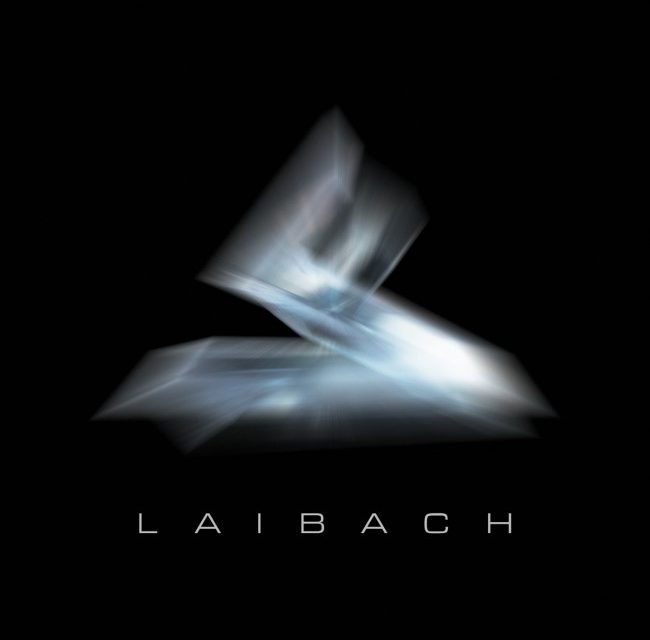
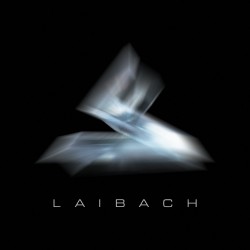
![[:SITD:], “Trauma: Ritual”](https://www.idieyoudie.com/home/wp-content/uploads/2017/04/R-10031947-1490445023-6232.jpeg-440x264.jpg)
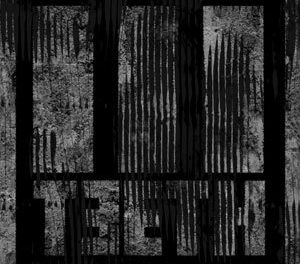
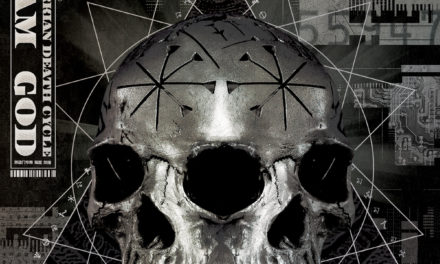
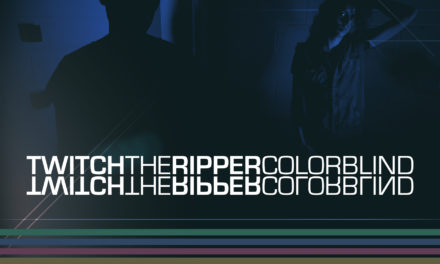
Isn’t it appropriate that Laibach’s most direct album and message be paired with pop music? Isn’t it neasier to pair a strong message with a song you can whistle? Haven’t Laibach always displayed the capacity to use any musical genre necessary to complete their message: whether it be metal, classical, martial, or art pop? So I believe the question becomes, how do their current stylistic choices add to their message? Is the use of pop language the most universal? Will it help their message meet the widest audience? Why pop music now? I think Laibach would want their audience to reach their own conclusions.
I totally agree about the complexity and nuance of their directness in the sample tracks I’ve heard. Are Laibach demanding anything short of revolution from its listeners? Are they warning of the trappings and danger of such movements and their associated sentiments? Are they sighing while considering the past “success” of previous similar movements? Are they using the siren song of pop music catchyness to comment on the similar salesman techniques / hucksterism used to gather people in any movement? This is what made and makes me adore them so much.